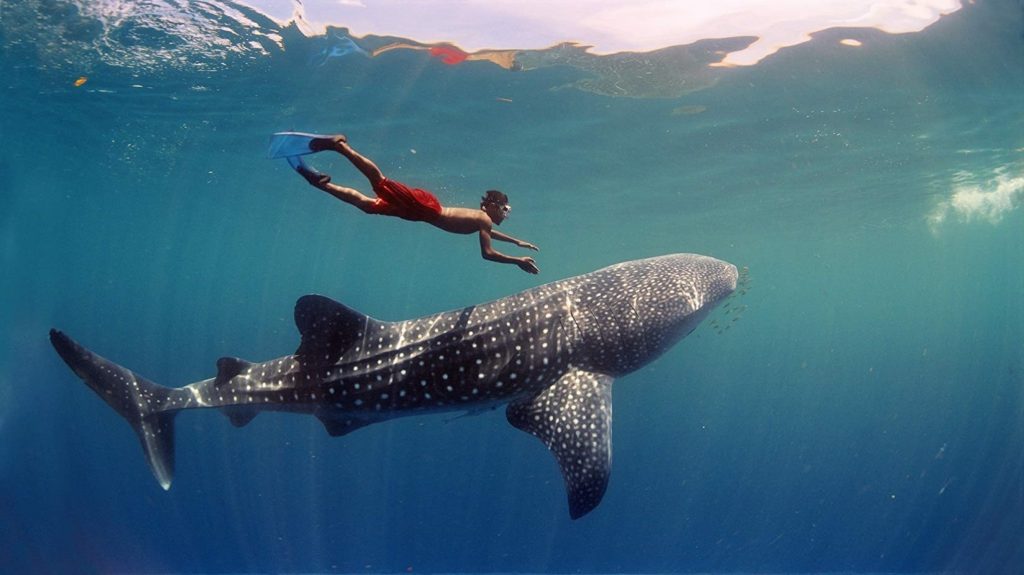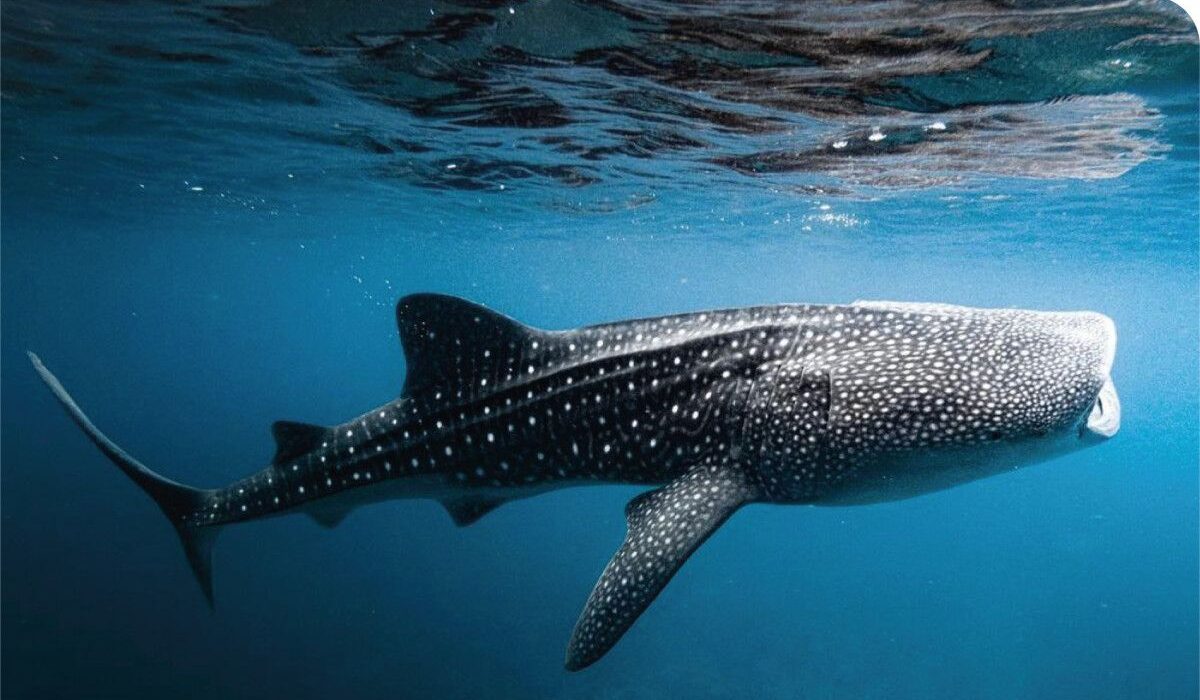The Maldives, with its stunning turquoise waters and vibrant coral reefs, is not just a paradise for beach lovers; it’s also a haven for marine life enthusiasts. Among the many wonders that draw visitors to these idyllic islands, the majestic whale shark stands out as a true marvel of the ocean. The South Ari Marine Protected Area (SAMPA) is one of the few places on Earth where these gentle giants can be seen regularly, making it a prime destination for those looking to encounter these incredible creatures up close.

The Whale Sharks of South Ari
Whale sharks, the largest fish in the ocean, are known to gather in specific coastal areas around the world. In the Maldives, a unique aggregation occurs in the South Ari Marine Protected Area. Here, primarily young male whale sharks, characterized by a high level of residency, can often be spotted. This aggregation has been well-documented, with studies providing insight into their behavior and patterns. Between 2014 and 2017, the Maldives Whale Shark Research Programme conducted extensive research to understand the occurrence patterns of these magnificent animals.

A Dive into the Data
The study, analyzing 1,077 whale shark encounters, revealed fascinating details about the temporal and spatial distribution of these creatures. Key environmental conditions, such as sea surface temperature and the occurrence of monsoons, were found to significantly influence whale shark behavior. These factors affect when and where the whale sharks appear, with notable differences observed both within a single year and across multiple years.
The monsoon season plays a crucial role in the movement of whale sharks. During the northeast monsoon, whale sharks tend to concentrate in a smaller longitudinal range, closer to the western-central part of the Marine Protected Area. This area is marked by deeper water conditions, thanks to the presence of a submarine canyon, providing an ideal habitat for these large fish.
A Call for Sustainable Tourism
While the opportunity to see whale sharks in their natural habitat is a major attraction for tourists, it also brings significant challenges. The booming tourism industry in the Maldives, coupled with the increasing interest in marine life, has raised concerns about the impact on the whale shark population. Human activities, such as boat traffic and irresponsible diving practices, can cause stress to these animals and disrupt their natural behavior.
The findings of the study underscore the need for careful management and sustainable tourism practices to protect this vulnerable species. By understanding the patterns and preferences of whale sharks, authorities can implement measures to minimize human impact, ensuring that future generations can continue to experience the awe-inspiring sight of these gentle giants in the wild.
Visiting the South Ari Marine Protected Area
For those eager to see whale sharks, the South Ari Marine Protected Area offers an unparalleled experience. The best time to visit is during the northeast monsoon season, from December to April, when whale shark sightings are more frequent. Tour operators in the region are increasingly aware of the need for responsible tourism, offering eco-friendly tours that prioritize the well-being of the marine life and the sustainability of the ecosystem.
The Maldives’ commitment to preserving its natural resources, including the whale shark population, is crucial for the long-term sustainability of its tourism industry. By promoting awareness and encouraging responsible practices, the Maldives can continue to be a leading destination for marine enthusiasts while safeguarding its precious underwater heritage.
Whether you’re a seasoned diver or a first-time snorkeler, the chance to swim alongside a whale shark is an experience that will leave you with memories to last a lifetime. So, plan your visit to the Maldives, immerse yourself in the beauty of its oceans, and discover the awe-inspiring world of the whale sharks.



